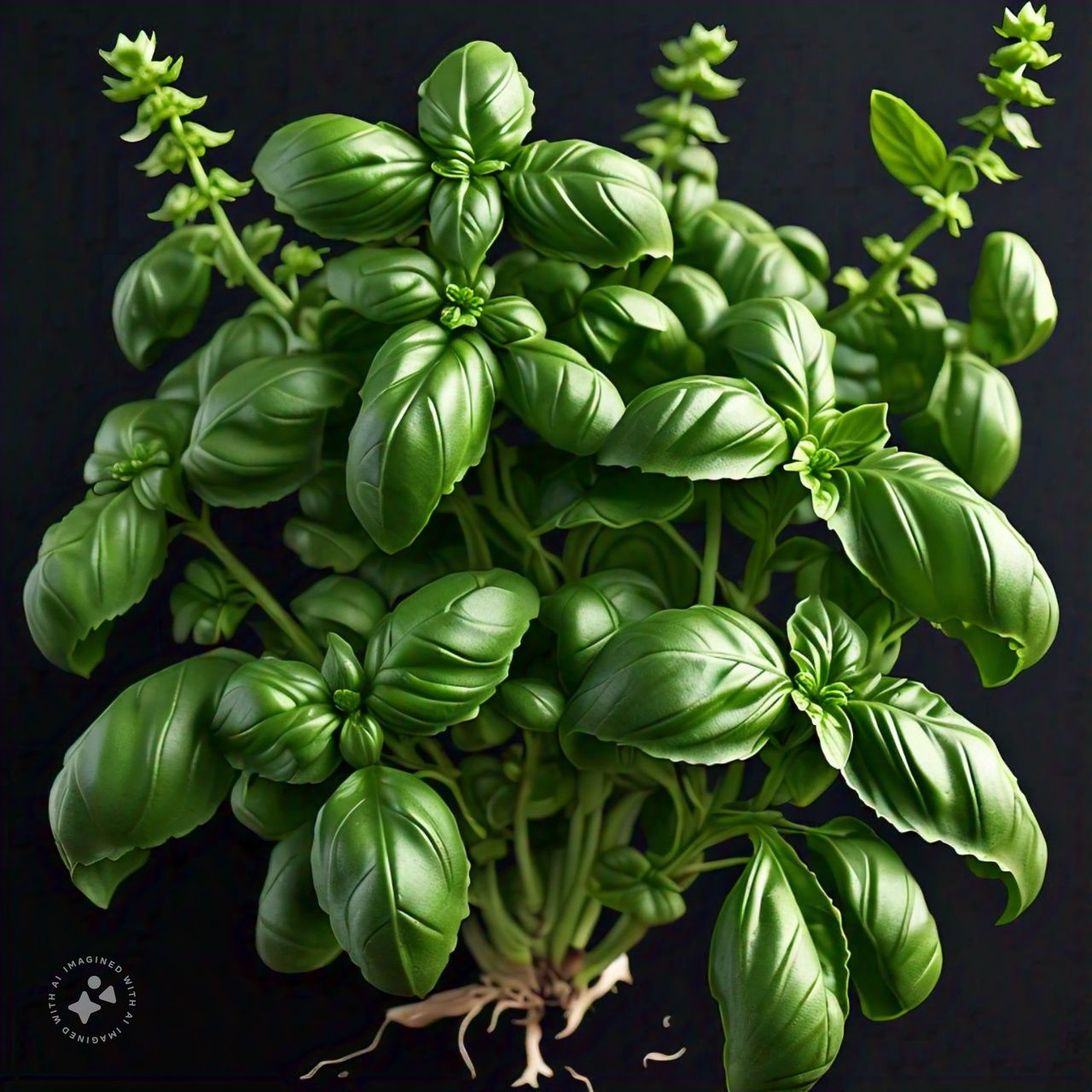Basil, often called the "King of Herbs," is a fragrant and versatile herb widely used in cuisines across the globe. Originating from tropical regions of Asia and Africa, basil belongs to the mint family (Lamiaceae). Its aromatic leaves add depth to dishes, and it’s a staple in culinary traditions like Italian, Thai, and Indian cuisine.
Benefits of Basil
Nutritional Benefits
Basil is more than just a flavor enhancer. It’s packed with nutrients:
-
Rich in Antioxidants: Basil contains flavonoids and essential oils that combat oxidative stress.
-
Anti-inflammatory Properties: Eugenol, found in basil, helps reduce inflammation in the body.
-
Vitamin Boost: High in vitamins A, C, and K, which support immunity, skin health, and blood clotting.
Health Benefits
Basil also offers significant health advantages:
-
Improves Digestion: Basil’s natural oils aid in digestion and reduce bloating.
-
Supports Mental Health: The herb’s adaptogenic properties help manage stress and anxiety.
-
Boosts Immunity: Its antimicrobial properties protect against bacterial and viral infections.
Types of Basil
Basil comes in many varieties, each with unique flavors and uses:
Popular Varieties:
-
Sweet Basil: Common in Italian recipes like pesto and Caprese salad.
-
Thai Basil: Features a slight licorice flavor, perfect for Asian dishes.
-
Holy Basil (Tulsi): Revered in Ayurveda for its medicinal properties.
-
Purple Basil: Known for its striking color and mild taste.
Comparison Table:
| Type | Flavor Profile | Best Uses |
|---|---|---|
| Sweet Basil | Sweet, peppery | Pesto, salads |
| Thai Basil | Spicy, licorice-like | Curries, stir-fries |
| Holy Basil | Earthy, medicinal | Teas, herbal remedies |
| Purple Basil | Mild, slightly sweet | Garnishes, infused oils |
Seasonal and Holiday Favorites with Basil
Basil is a versatile herb that can elevate your cooking year-round. Here are some seasonal and holiday favorites:
Spring:
-
Basil Lemonade: A refreshing drink perfect for picnics.
-
Asparagus and Basil Risotto: Light and flavorful.
Summer:
-
Caprese Salad: Fresh tomatoes, mozzarella, and basil.
-
Basil Ice Cream: A unique dessert that’s both sweet and aromatic.
Fall:
-
Tomato Basil Soup: Warm and comforting on chilly evenings.
-
Pumpkin Basil Pasta: A seasonal twist on classic pasta dishes.
Winter:
-
Basil Infused Olive Oil: Ideal for holiday gifting.
-
Herbed Bread Rolls: A cozy addition to festive dinners.
Cooking Tips for Basil
To get the most out of basil, consider these tips:
-
Use Fresh Basil: Dried basil loses much of its flavor. Always opt for fresh leaves.
-
Add at the End: Basil’s delicate flavor diminishes with prolonged cooking. Add it during the last few minutes.
-
Proper Storage: Store fresh basil in a glass of water at room temperature or freeze leaves in olive oil for longer use.
-
Pairing Suggestions: Basil pairs well with tomatoes, garlic, lemon, and cheeses like mozzarella and parmesan.
Impact of Food Waste on the Environment
Reducing basil waste can significantly contribute to environmental sustainability:
-
Landfill Reduction: Organic waste like basil leaves decomposes in landfills, releasing methane, a potent greenhouse gas.
-
Water Conservation: Growing basil requires water; wasting it indirectly wastes this resource.
-
Composting: Turn unused basil into compost to enrich soil instead of discarding it.
FAQs About Basil
1. Can I grow basil indoors?
Yes! Basil thrives in pots on sunny windowsills. Ensure it gets at least 6-8 hours of sunlight daily.
2. How do I prevent basil from wilting?
Trim the stems and place them in a jar of water. Cover loosely with a plastic bag to maintain freshness.
3. Is basil safe for everyone?
While basil is safe for most, pregnant women should avoid excessive consumption of basil essential oil due to its potency.
Latest News and Information on Basil
-
Hydroponic Basil Farming: Innovative farming techniques are making basil cultivation more sustainable and efficient.
-
Basil’s Role in Herbal Medicine: Ongoing research explores its potential in managing diabetes and cardiovascular health.





Share:
Thyme: A Culinary and Medicinal Powerhouse
Sage: The Versatile Herb for Flavor and Wellness